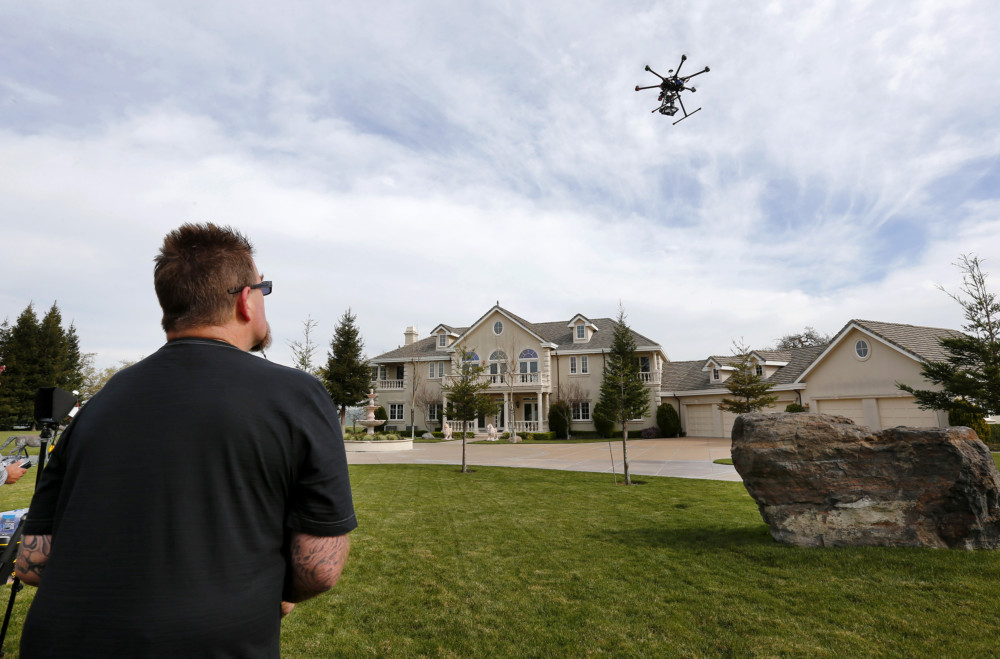By Philip A. Vanno
Observer-Dispatch, Utica, N.Y.
WWR Article Summary (tl;dr) Remote-controlled flying drones are growing in popularity. And now, thanks to changes in commercial drone law, we could see them being used for even more services, like product delivery.
Observer-Dispatch, Utica, N.Y.
If you never thought you’d live to see the day when an order of chicken riggies could be delivered to your doorstep by a remote-controlled flying drone, you could be in for a surprise.
Changes to a Federal Aviation Administration law that went into effect at the end of August have eased restrictions on the commercial use of small unmanned aircraft and could be altering the way local businesses and agencies utilize them.
Previously, operators had to apply for special waivers from the FAA to use drones for business, which could — depending on the situation — be a time-consuming and expensive process.
Commercial operators also no longer will be required to obtain a pilot license, but will have to pass a written test.
“The current FAA scheme requires commercial drone operators to spend months waiting for an exemption and to employ a pilot with a manned aircraft license from the FAA,” a spokesperson for worldwide commercial drone maker DJI said in a statement.
“Those high barriers to entry have prevented many companies from exploring the benefits of drones in their industry, and have been a source of frustration for business owners for years.”
While they still need to apply for waivers if they want to fly drones at night, higher than 400 feet or in other specific situations, the rule changes will allow the unmanned aerial vehicles to more easily be used for an aerial perspective on things such as construction, surveying, agriculture, firefighting, search and rescue, conservation, academic research, film and video production.
The FAA estimates that the new rules could generate more than $82 billion for the U.S. economy and create more than 100,000 new jobs over the next 10 years.
While the sight of tomato pies flying over Utica might still be a distant hope, the changes are paving the way for the creation and expansion of more subtle, drone-based local businesses.
Rick Leaf Jr. launched his Ilion-based business — Sky High Photography — about a month ago in hopes of capturing the relatively untapped local market of using drones for aerial photos and video.
The 33-year-old said it took him about four years and $2,500 to get himself prepared to start the business, and while he welcomes the new law change, he suggests that eager entrepreneurs be patient.
“It’s not that hard to go out and start a drone business. You can do that pretty quickly if you want,” said Leaf, who uses his drone to capture everything from music festivals to large rural properties for real estate agencies. “For me, learning to fly and putting together the best footage was what took the most time. You need to be really comfortable using it effectively.”
In addition to business, the commercial drone law change also is expected to have an impact on certain functions of county government through use of drones whether it be under Part 107 of the FAA law or by use of a certificate waiver of authorization.
“This is particularly important given that this would allow operations during an actual emergency with reduced time required to get an UAS airborne to assist in the disaster/recovery efforts as needed,” said Russell Stark, commissioner of the Oneida County Department of Aviation.
In whatever future form commercial drone use takes locally, Bob Paine, co-founder of CNY Drones, a group that promotes the STEM-based use of drones throughout the area, said safety must be observed above all.
“There are so many things out there right now on drones and unmanned aircraft that it can be overwhelming,” said Paine, whose group will be hosting an event called Drone Informational Day on Oct. 1 at Griffiss International Airport to answer such questions. “There is huge potential on all levels, but everyone needs to know what the rules and regulations are so we can ensure the skies in our community remain safe.”














































































































































































































































































































































































